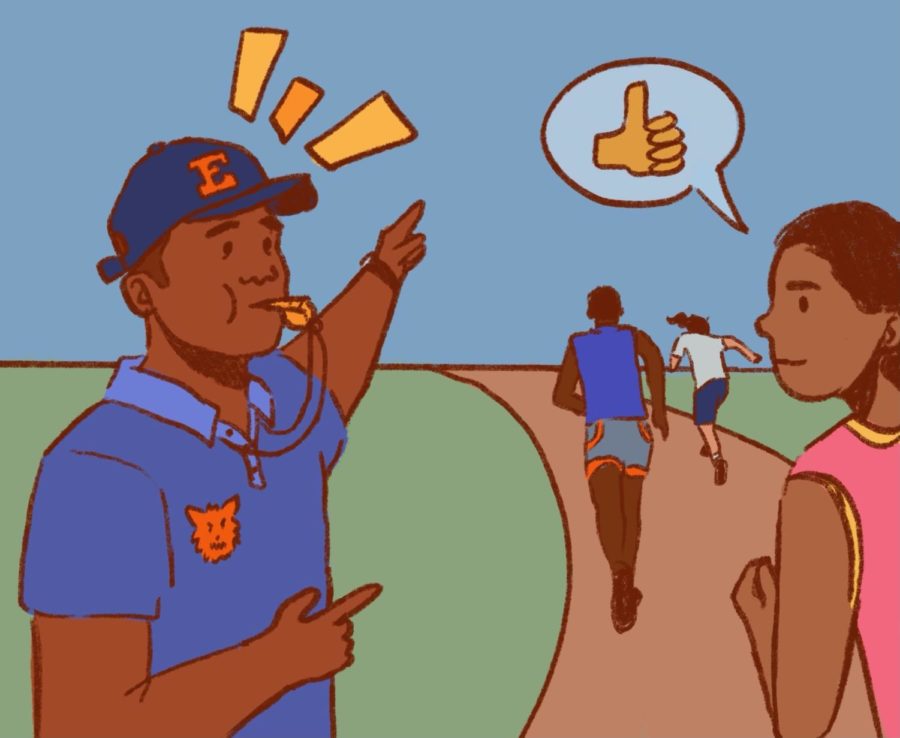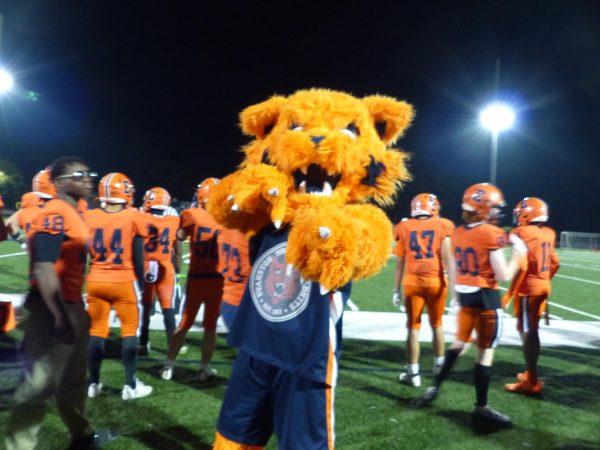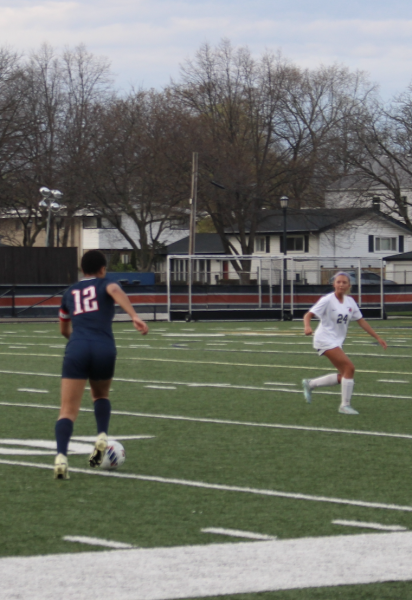Sports: athletes’ first exposure to discipline
December 16, 2022
If you’re on time, you’re late. Don’t expect to show up out of attire, or you’ll be asked to leave. If you miss a day, it’ll come at a price.
These three standards apply to nearly any professional space you step into. From the workplace to any educational institution to flat out walking down the street, we live in a society governed by rules, and by the time students reach their adult life, they’re expected to have most of them figured out. However, for many students, their first exposure to a strict culture of rule-following stems from an unexpected source: sports.
“I think the first time I experienced strict discipline was when I got to high school [volleyball],” shares junior volleyball player Annika Stewart. “There was an expectation that you were on time, and if not, you were running or everyone else [on the team] was running, so it really made everyone get there on time.”
Punctuality is just one of the more basic concepts many coaches hope to instill into their athletes. Among these are the messages that an athlete should come ready with the proper attire, maintain an appropriate attitude and sustain an exemplary attendance, and if an athlete steps out of line, a consequence typically follows.
“It forced me to be more of a rule-follower … It truly got me into a routine, and I couldn’t see my life without it in that way, and I couldn’t see myself without following certain [rules] I follow right now,” Stewart continues.
Beyond expectations within the practice setting, ETHS athletics expect integrity that is found throughout all dimensions of their livelihood. Coaches look to their athletes to represent their sport nobly, even when they leave practice, and this begins with academics. Each week, the school sends a grade report to coaches for each athlete during the season, and if a student is earning less than a C- in two or more classes, they are placed on academic study table, meaning the student must attend three support sessions offered by the school within a week or else they will be ineligible the following week. Consequently, athletes have placed more focus and value in their academics, with ETHS student athletes holding an average grade point average of 3.9 as opposed to the average of 3.24 for students who are not involved in sports.
“I’ve seen great turnarounds from players who maybe didn’t take school seriously freshman year and had to learn the hard way in terms of understanding our academic standards here at ETHS. You have to be a student first, an athlete second,” explains varsity football head coach and Assistant Athletic Director Mike Burzawa.
When put into consideration, it makes sense. Sports are founded on the basis of abiding by rules, and in order to produce an effective and reliable team, it’s essential for many coaches that their athletes have clear expectations that they’re meeting everyday. But teenagers, by nature, are more likely to be impulsive and rebellious than adults who are expected to follow the same set of rules for nearly any line of work, so how are coaches able to instill this disciplined mindset into their athletes? For many teams, coaches effectively enforce rules by utilizing one of the driving forces that shapes human decisions: the concern with how others will perceive you.
“For me, a lot of [my discipline] comes from competitiveness with the other guys or the way the other guys view me,” senior lacrosse player Charlie Plante explains. “You want to be someone who can be relied on.”
When coaches set clear expectations for their players, their players begin to expect clear expectations from each other, and that is the key to making sports such a unique environment in its ability to not only initiate discipline within their players but also sustain those learned principles.
“Everything starts with structure, accountability and discipline. First and foremost, in any athletic program, [with] any team, you just have to have great discipline,” Burzawa says. “In the game of football, it really comes down to senior leaders emerging as leaders and setting the tone of everybody being on time [and] everybody being accountable and prepared for practice. You go from freshman year, when [athletes] can’t remember their spikes or, potentially, how to get dressed in their football equipment. Then, as they go through the program, [our coaches] become less patient with those things, and [we] expect those to be taken care of on a daily basis.”
Once students begin to hold each other accountable, it signals that they’ve developed into a headspace of holding themselves accountable, which is a true testament to impactful coaching that extends far beyond the realm of athletics and into the way students are able to lead their lives.
“You learn a lot about discipline through sports. There’s two types of discipline, a lot of the times it’s the authoritarian discipline that you can experience from your coach, which I think is a lot of times what kids first experience. ‘Coach tells me to do this, I gotta do this, I gotta follow the rules,’” says Athletic Director Chris Livatino. “As they want to get better and better, they learn that the most important discipline is self discipline—that’s holding yourself accountable and setting your own standards, and I think sports is a great way to evolve a kid from just being a rule follower to being a rule creator for themselves.”














